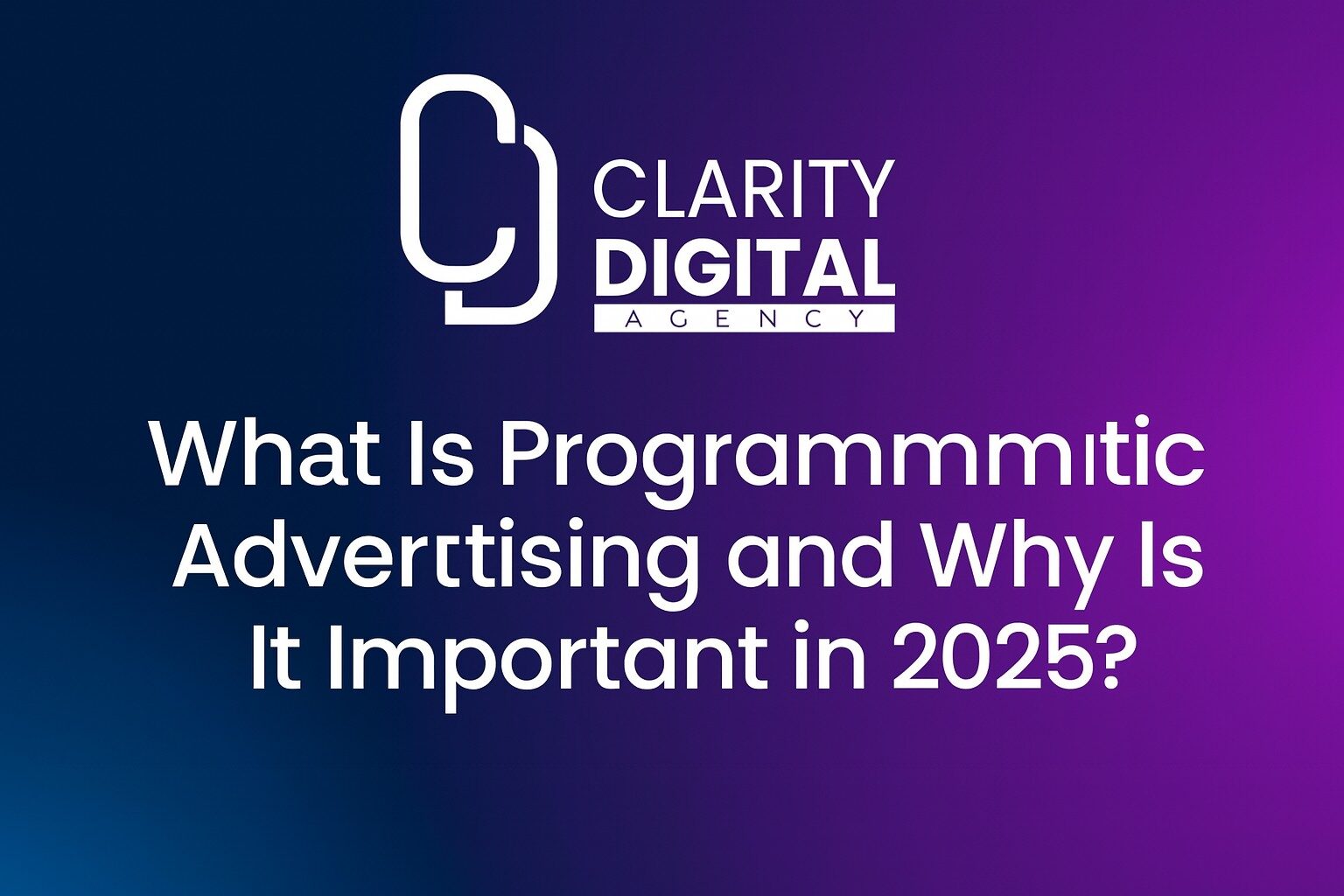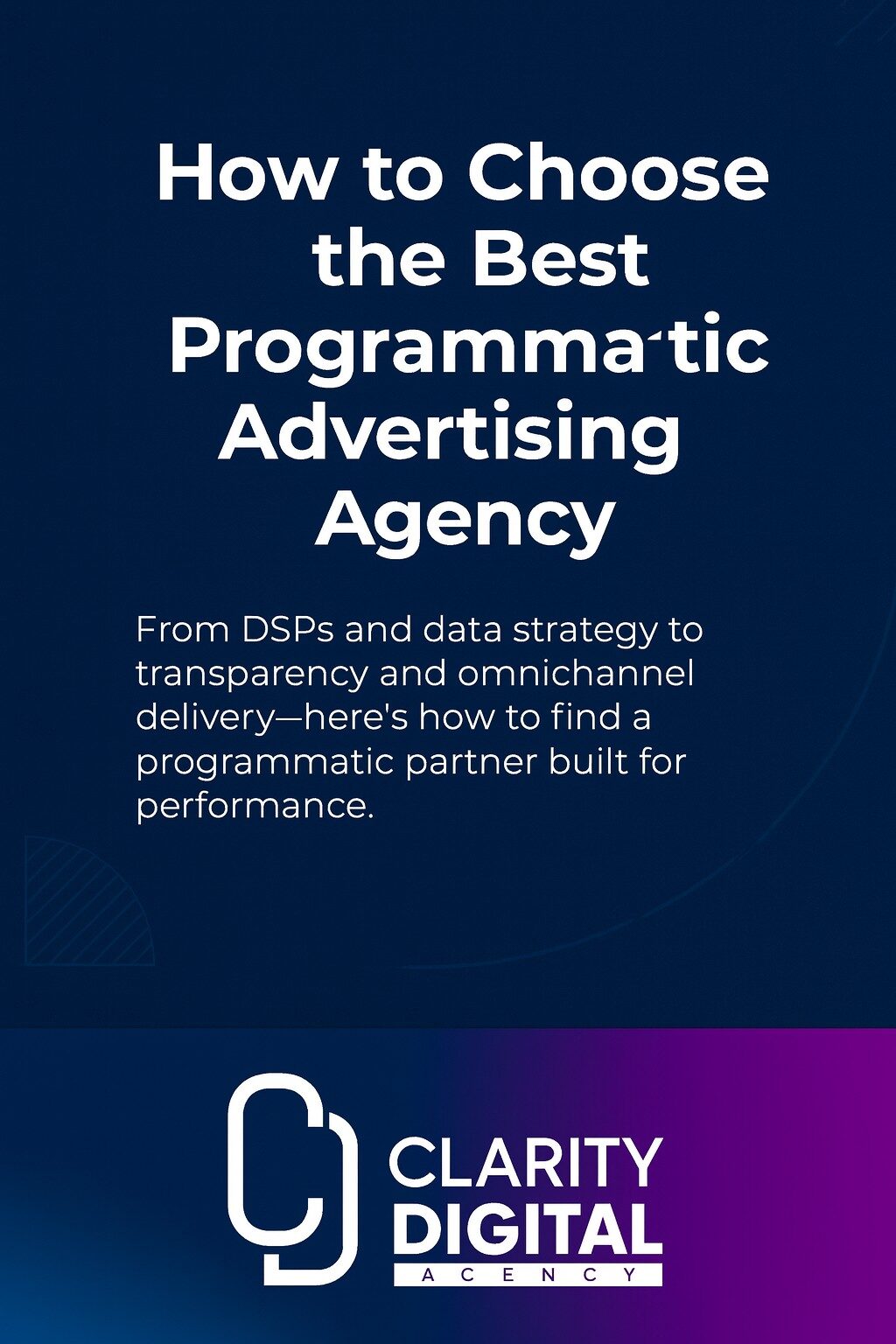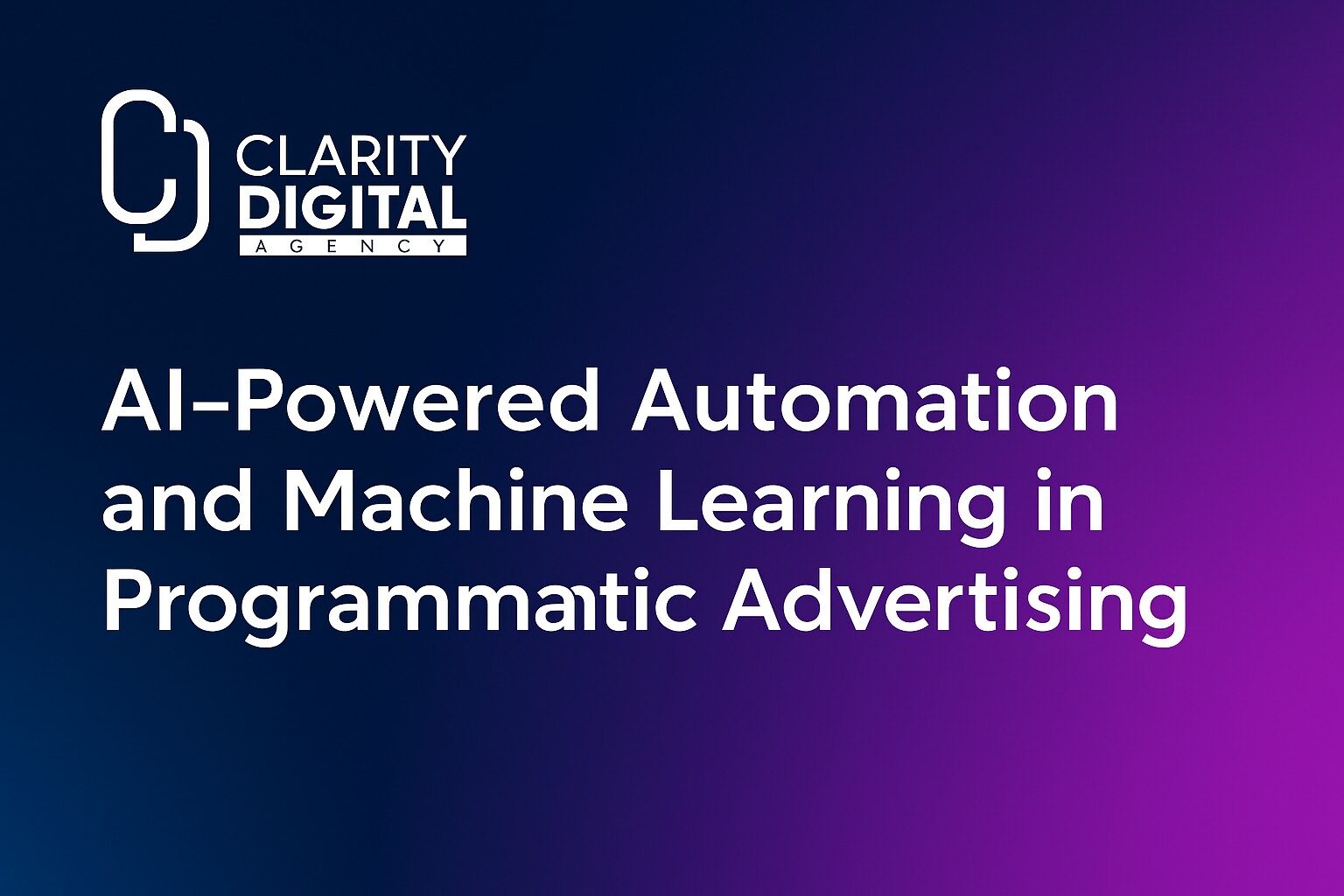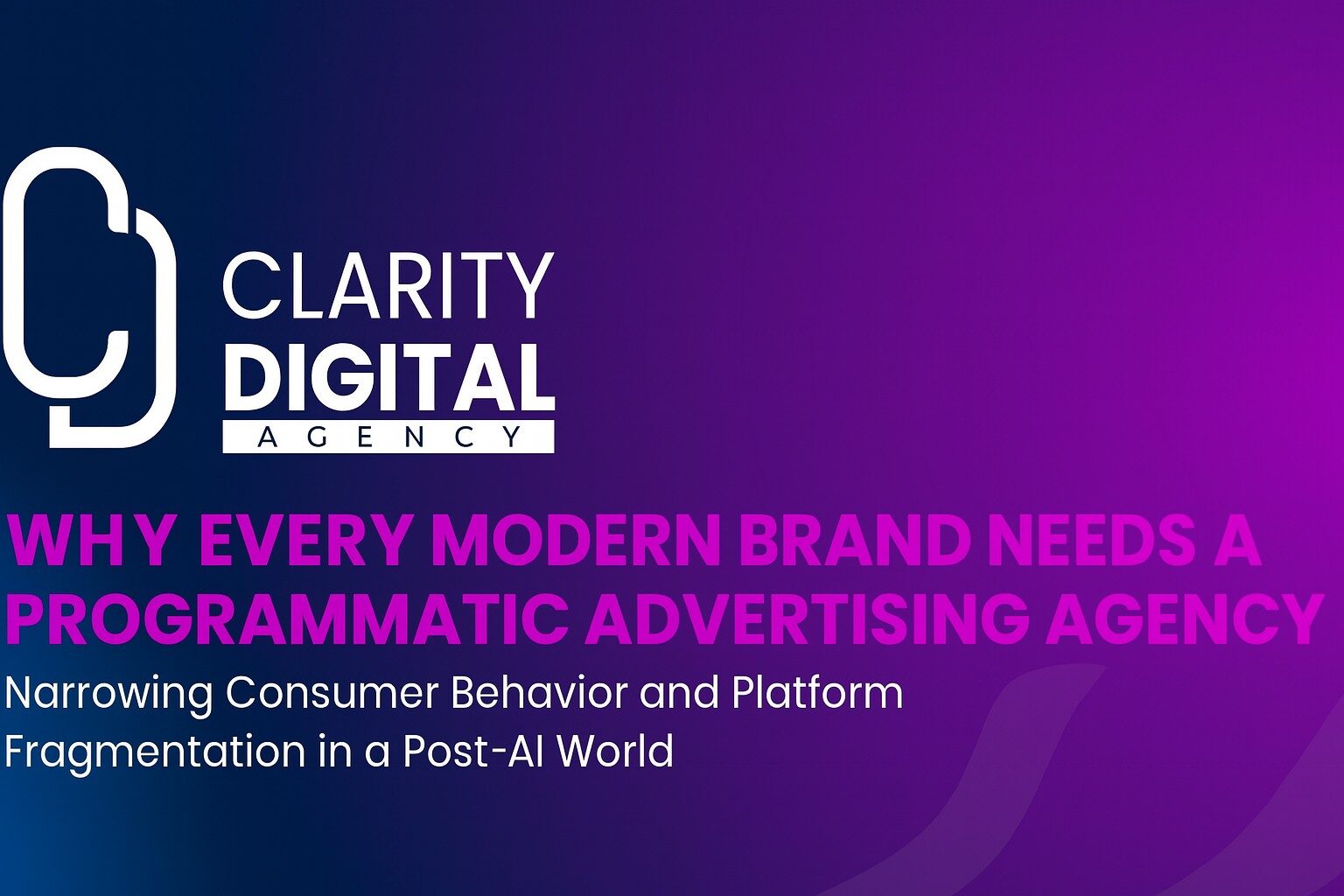What is Programmatic Advertising and Why is It Important in 2025
Programmatic advertising has revolutionized the way brands connect with audiences. By leveraging AI and real-time bidding, it automates the process of buying and placing digital ads, ensuring the right message reaches the right person at the right time. As of 2025, programmatic advertising services dominate the digital ad space, accounting for over 92% of display ad spend globally (Statista, 2025).
In this article, we’ll explore:
- What programmatic advertising is
- Why it’s critical in 2025
- Key benefits
- Industry-specific use cases (automotive, B2B, cannabis)
- How to choose a programmatic advertising agency
- FAQs and best practices
What is Programmatic Advertising?
Programmatic advertising is the automated process of buying and selling ad inventory through technology platforms, using data-driven algorithms to target specific audiences.
Programmatic Advertising Explained
Traditionally, ad buying required manual negotiations between advertisers and publishers. Programmatic advertising replaces that with:
- Real-time bidding (RTB)
- AI-driven targeting
- Audience segmentation
By 2025, programmatic ads are not just about display; they encompass:
- Programmatic display advertising services
- Video and CTV (Connected TV)
- Audio streaming ads
- Digital out-of-home (DOOH)
Why is Programmatic Advertising Important in 2025?
1. Data-Driven Precision
With AI advancements, programmatic advertising services now analyze billions of data points to serve hyper-targeted ads, improving ROI by up to 30% compared to traditional digital campaigns (eMarketer, 2025).
2. Omnichannel Reach
Consumers engage across devices and platforms. Programmatic ad agencies can deliver cohesive campaigns across:
- Web
- Mobile
- CTV
- DOOH
- Audio streaming
3. Cost Efficiency
Low cost programmatic display advertising services allow small and medium businesses to compete with major brands. Automated bidding minimizes wasted ad spend.
4. Real-Time Optimization
In 2025, machine learning allows campaigns to auto-optimize based on live performance data, reducing manual oversight.
Benefits of Using Programmatic Advertising
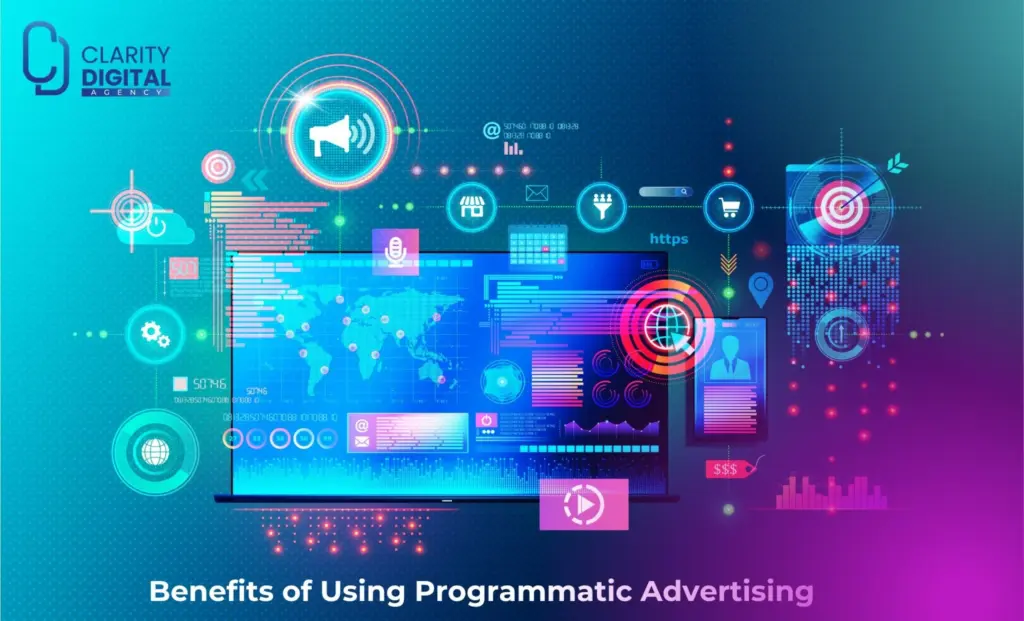
Programmatic advertising has become a cornerstone of modern digital marketing, offering unique advantages that traditional methods can’t match. Below are some of the key reasons many brands choose to invest in programmatic ads:
- Scalability: Reach millions of impressions in seconds.
- Advanced Targeting: Leverages first-party and third-party data for precise audience segmentation.
- Efficiency: Automates buying process, saving time and resources.
- Better ROI: Continuous optimization maximizes ad spend effectiveness.
- Transparency: Real-time reporting provides full visibility into performance.
How Programmatic Advertising Ensures Targeting Accuracy and Efficiency
o achieve such precise targeting and efficiency, programmatic advertising relies on advanced technology and data-driven strategies. Programmatic platforms use:
- AI algorithms to predict user behavior.
- Lookalike audiences to expand reach while maintaining relevance.
- Contextual targeting to serve ads in brand-safe environments.
Result: Ads are shown to the right user, at the right time, on the right device.
Common Myths About Programmatic Advertising
Despite its widespread adoption, there are still several misconceptions that keep some brands from fully embracing programmatic advertising. Let’s debunk a few of the most common myths
- Myth 1: It’s only for big brands. Reality: Low cost programmatic display advertising services make it accessible for SMBs.
- Myth 2: It’s entirely automated with no human oversight. Reality: Human strategy and creative are critical to success.
- Myth 3: Programmatic ads are intrusive. Reality: When done right, they deliver relevant, personalized experiences.
How Programmatic Advertising Impacts Job Roles in Marketing
As programmatic advertising continues to evolve, it’s reshaping the responsibilities of marketing teams and creating new opportunities across multiple roles:
- Media Buyers: Shift from manual buying to strategic oversight.
- Data Analysts: Greater demand for performance and audience insights.
- Creative Teams: Focus on dynamic creative optimization (DCO).
Best Practices to Optimize Programmatic Ad Campaigns
To get the most out of your investment in programmatic advertising, following proven strategies can significantly enhance performance and ROI. Here are some best practices to guide your campaigns:
- Use first-party data: Improves targeting accuracy post-cookie.
- Leverage retargeting: Keep your brand top-of-mind.
- Test creatives regularly: Use A/B testing to improve CTR.
- Monitor KPIs: CTR, CPA, ROAS are critical for optimization.
- Ensure brand safety: Use whitelists and fraud prevention tools.
By implementing these best practices consistently, brands can ensure their programmatic campaigns remain efficient, targeted, and adaptable to changing market dynamics. Continual testing and refinement are key to sustaining long-term success.
Programmatic Advertising: Frequently Asked Questions
Can Programmatic Advertising Be Used for Retargeting?
Yes. Retargeting is one of the most effective programmatic advertising services. It allows brands to re-engage users who visited their site or interacted with their content.
How Do You Measure Performance in Programmatic Advertising?
Key metrics include:
- CTR (Click-Through Rate)
- CPA (Cost per Acquisition)
- ROAS (Return on Ad Spend)
- Viewability Rates
- Conversion Rates
Common Concerns or Misconceptions
- Ad Fraud: Mitigated by choosing reputable programmatic advertising agencies and using verification tools.
- Loss of Control: Transparency dashboards give full oversight.
- Privacy Issues: Compliance with GDPR and CCPA is built into most platforms.
Is Programmatic Advertising Only for Large Brands?
No. With online self-service TV advertising programmatic platforms and low cost programmatic display advertising services, even startups can leverage the technology.
How Does Targeting Work in Programmatic?
Targeting uses:
- Demographic and geographic data
- Behavioral signals
- Contextual relevance
- Device and cross-platform matching
What is a Demand-Side Platform (DSP)?
A DSP is software used by advertisers and agencies to buy digital ad inventory in real-time across multiple publishers. It integrates with data management platforms (DMPs) for audience targeting.
What Types of Programmatic Deals Exist?
- Open Auctions (RTB): Real-time bidding for inventory.
- Private Marketplaces (PMPs): Invitation-only premium inventory.
- Preferred Deals: Fixed CPM agreements.
- Programmatic Guaranteed: Direct deals with guaranteed impressions.
Where Do Programmatic Ads Appear?
- Websites and blogs
- Social media platforms
- Connected TV apps
- Mobile apps
- Digital out-of-home screens
- Streaming audio platforms
What Types of Businesses and Industries Use Programmatic Ads?
- Automotive
- B2B SaaS
- Retail and eCommerce
- Cannabis and marijuana brands
- Financial services
- Travel and hospitality
How Does Programmatic Ad Buying Work?
- Advertiser sets campaign goals and targeting.
- DSP bids on impressions in real-time.
- Winning bids display ads to the selected audience.
- Campaign data feeds back into AI for optimization.
Industry-Specific Programmatic Advertising Services
Automotive Industry Programmatic Advertising Services
The automotive sector leverages programmatic to target:
- In-market car buyers
- Specific geographic regions
- Cross-device retargeting
Stat: 70% of auto brands now allocate more than half their digital budget to programmatic ads (IAB, 2025).
B2B Programmatic Advertising Services
B2B marketers use account-based targeting, reaching decision-makers across platforms. Programmatic enables:
- Firmographic targeting
- LinkedIn and display integration
Cannabis & Marijuana Programmatic Advertising Services
Given regulatory restrictions, cannabis brands rely on specialized programmatic advertising agencies to navigate compliance while reaching:
- Age-verified audiences
- Geo-targeted regions where cannabis is legal
Programmatic Advertising Services in India
India’s digital ad market is projected to hit $15B by 2027, with programmatic accounting for 85% of spend by 2025. Affordable services make it a hotspot for low cost programmatic display advertising services.
Programmatic Advertising vs Managed Service
| Aspect | Programmatic Advertising | Managed Service |
|---|---|---|
| Control | Advertiser-driven | Agency manages campaigns end-to-end |
| Cost | Lower, self-serve | Higher, includes strategic planning & creative |
| Best For | Experienced marketers | Brands wanting full-service programmatic ad agency |
How to Choose the Right Programmatic Advertising Agency
- Expertise in Your Industry: Look for agencies offering specialized services (e.g., automotive industry programmatic advertising services).
- Transparency: Ensure reporting includes real-time performance data.
- Technology Stack: The best programmatic ad agencies integrate AI, data management platforms (DMP), and fraud prevention.
- Pricing Models: Compare CPM, CPC, or CPA-based services to match your budget.
The Future of Programmatic Advertising Beyond 2025
- AI-Powered Creative: Dynamic creative optimization (DCO) personalizes ads in real-time.
- Privacy-First Targeting: With the phase-out of cookies, contextual and first-party data take center stage.
- Expansion into DOOH: Digital billboards and smart city advertising are now automated via programmatic.
Final Insights and Strategic Takeaways
Programmatic advertising in 2025 is no longer optional; it’s the backbone of digital marketing. With advanced AI, omnichannel capabilities, and data-driven precision, businesses across all sectors are leveraging programmatic advertising services to drive ROI and scale campaigns efficiently.
Whether you are an automotive brand, B2B company, or cannabis marketer, choosing the right programmatic advertising agency or service can significantly impact your bottom line. The key is understanding your goals, audience, and selecting a partner with the technology and expertise to deliver.
Clarity Digital: Your Strategic Programmatic Advertising Agency
With our headquarters in Irvine, in the heart of beautiful Orange County, Clarity Digital proudly serves clients across California and nationwide. We provide reliable, measurable programmatic advertising services along with a full suite of digital marketing solutions. With over a decade of experience, we have built a reputation for combining advanced technology with strategic insight to deliver campaigns that drive measurable growth and maximize ROI. What sets us apart is our unwavering commitment to transparency—clients have full visibility into every dollar spent and every performance metric. We also operate on a simple flat-fee model, eliminating hidden costs and making it easy for businesses of all sizes to scale with confidence.

